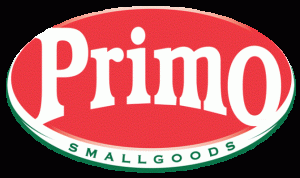Brazil’s JBS buys Primo Smallgoods
Australia’s largest meat processor, marketer and export JBS Australia has signed a $1.45 billion deal to acquire ham, bacon and smallgoods producer Primo Smallgoods.
The brands of the Primo business include not just Primo but also Hans Continental Smallgoods and Beehive. The Company is Australia’s largest producer of ham, bacon and smallgoods. Primo Smallgoods’ operations include five processing plants operating across Australia as well as New Zealand, employing more than 4,000 people.
Primo Smallgoods was founded in 1985 by Sydney entrepreneur Paul Lederer with approximately 38 employees, operating a manufacturing facility in Homebush, Sydney. In 1991, the Company expanded into Queensland with the acquisition of Gold Cob Smallgoods; in 1998 the Company purchased an abattoir at Port Wakefield in South Australia; and in 1999 the Company purchased a beef abattoir at Scone in the Hunter Valley, and a distribution facility in Melbourne. In 2009, Primo Smallgoods acquired the entire business operations of former competitor – Hans Continental Smallgoods. Nationally, the Company has in excess of 4,000 employees.
Australia’s cured meats and smallgoods market
Australia’s $3 billion cured meats and smallgoods market includes 194 businesses and employs more than 8,200 people, according to market research organisation IBISWorld.
The industry includes firms that primarily manufacture bacon, ham, smallgoods and other prepared meat products. Smallgoods usually refers to meat products where the meat has been manufactured to form a new product, such as sausages; salamis; pates; and dried, roasted and preserved meat products. Smallgoods are made from pig meat and other meats such as poultry and beef.
IBISWorld said that over the past year, demand for smallgoods produced by the industry had been buoyed by the development of new products that have addressed consumer needs of health and convenience. Industry revenue is forecast to grow by 2.3 per cent in 2014-15, with increased innovation yielding low-fat products and more efficient single-serve packaging for convenience-conscious consumers. Domestic demand has also been supported by the increasing availability of pig meat imports, but these only account for a marginal proportion of overall domestic demand.
The Cured Meat and Smallgoods Manufacturing industry is concentrated along the eastern seaboard, with Victoria, New South Wales and Queensland combined accounting for a little over 70 per cent of the total number of establishments. Victoria has the largest concentration of establishments, at 34.6 per cent of the industry total. New South Wales has experienced a contraction in industry concentration, falling to 24.7 per cent of establishments, but remains in second place. Queensland’s share has fallen marginally from 14.1 per cent to 11.5 per cent of overall establishments. Over the corresponding period, Western Australia’s share of establishments grew from 8.5 per cent to 12.6 per cent.
Despite these favourable conditions, IBISWorld said the Cured Meat and Smallgoods Manufacturing industry has been plagued by low profitability and volatile conditions, which have contributed to significant consolidation over the past five years. Competitive pressures from supermarket home brands on the leading supplier brands such as Primo and Don have also limited opportunities for growth within Australia.
Primo will give JBS Australia diversification into Pork
The Primo acquisition appears to be an important strategic move by JBS Australia into pork given the global shift towards intensive pork production focused on strong future demand in Asian markets.
Pork production is an efficient form of red meat production with a higher and faster protein conversion ratio than beef or sheep meat. When compared with other red meats, pork may offer opportunities for high volume throughput through faster production and value-adding from one end of the supply chain to the other.
China and Vietnam and other Asian markets with strong traditions of pork consumption are likely to create future opportunities for value-added smallgoods products from Australia.
JBS acquisition set to increase Primo’s exports to Asia
The transaction is set to leverage the Primo Group’s growing export operations across Asia, including China, and is consistent with the global strategy of JBS to grow its presence in value-added products.
JBS Australia, which is a division of Brazilian company JBS Global, exports meat products from Australia to more than 50 countries globally, and has approximately 8,500 Australian employees. JBS Australia supplies beef, veal, lamb, hogget and mutton, and its acquisition of Primo will see it move into the pork sector.
JBS Australia is the country’s largest beef processor and one of the largest lamb processors, making the company the largest multi-species producer, marketer and exporter in Australia. The Company’s product range currently includes a variety of beef, lamb and mutton produced at its ten processing facilities scattered down the eastern seaboard of Australia.
In addition to all meat cuts, the Company offers a wide variety of fancy meats (offals), other by-products such as hides, skins, and meat and bone meal, while maximising carcase value through its value add facility, Foodpartners, where it has the capacity to produce additional items such as peperoni and meat crumble. JBS Australia has a daily processing capacity of 8,000 cattle and 21,000 smallstock.
JBS Global
JBS Global first broke into the Australian market through its acquisition of Swift Foods in 2007 and has since purchased other businesses, including the Victorian-based meat processor The Tasman Group and Rockdale Beef. It has revenue of $US41 billion a year.
JBS Global has more than 300 production facilities worldwide and more than 185,000 employees. In addition the company has a diversified product portfolio, with dozens of recognized brands. This variety of products and a presence in 22 countries (from production platforms and offices) serve more than 300,000 customers in over 150 nations.
JBS is present in five continents with production platforms and sales offices in Brazil, the US, Australia, Canada, Italy, Argentina, Uruguay, Paraguay, Mexico, China, Russia and others. It operates in the industries of beef, swine, sheep, poultry, production and marketing of leather products, pet foods, cleaning and hygiene, cans, collagen, biodiesel, transportation and vegetables.





